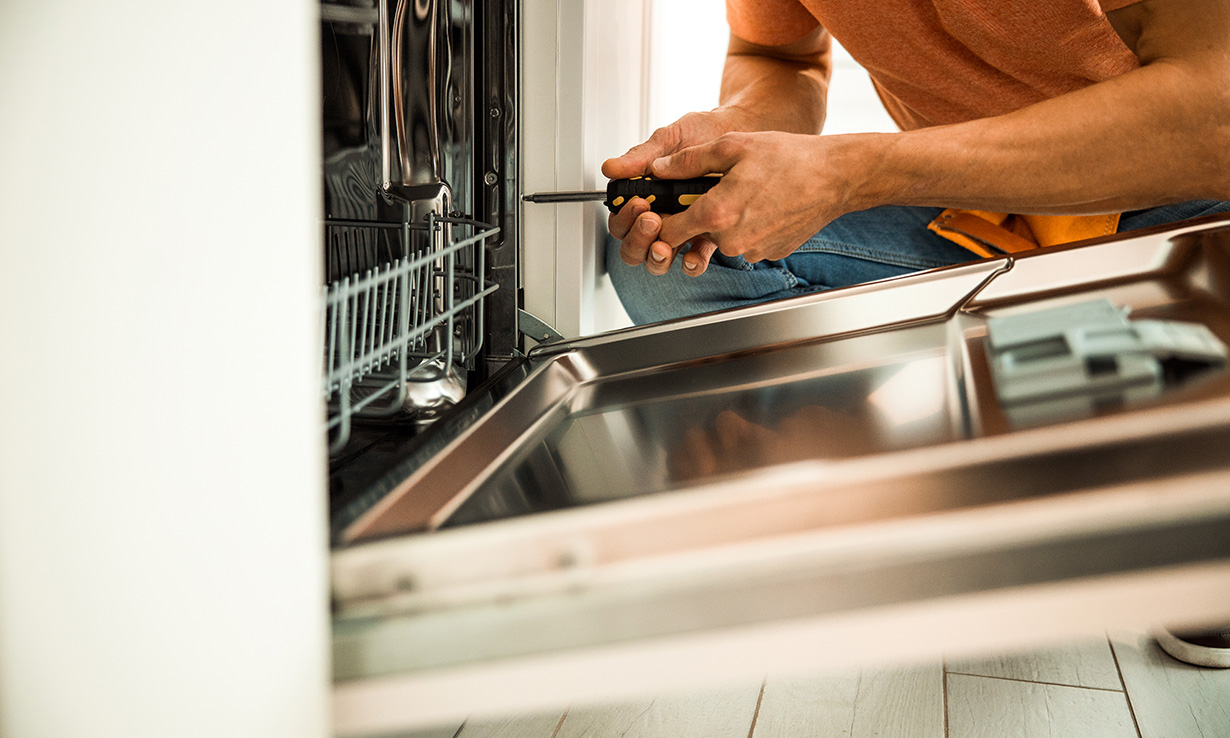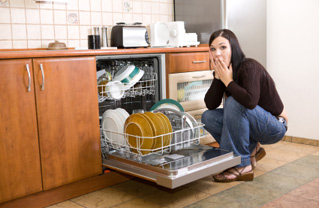How to Detect Issues with My Dishwasher: Useful Tips
How to Detect Issues with My Dishwasher: Useful Tips
Blog Article
They are making a few good pointers relating to Common Dishwasher Problems in general in the content down the page.

Having your dishwashing machine malfunction or malfunction can be a big deal and create some pain in your home. Dish washers are makers that we utilize to tidy meals and flatwares immediately to conserve us the anxiety of manually doing it.
Like every other maker that relieves human initiative, dishwashers can break down and also develop some mistake at some time in time. There are numerous faults your dishwasher might create, and while a few of them can be solved by replacing some parts or repairing them, various other more extreme flaws will certainly require that you get a new dish washer.
This article will certainly identify a few typical mistakes your dishwasher might establish to impede its general efficiency and also just how these mistakes can be fixed.
Usual Mistakes
Typical dishwashing machine faults could range from small to significant ones. Relying on the degree, you will either need the solutions of specialist plumbers to deal with or change it.
A few of the most usual faults consist of:
Dripping Dishwashing machine
This is probably one of the most daily dish washer issue, and the bright side is that it is simple to recognize. Leaks take place because of numerous reasons, and also the leaks can bungle your cooking area. Typical sources of dishwashing machine leakages consist of;
If your meals and flatwares come out of the dish washer as well as still look unclean or unclean, your spray arms might be a problem. In a lot of cases, the spray arms can get obstructed, and it will call for a quick clean or a substitute to function efficiently once again.
Lack of ability to Drain
Often you might see a large amount of water left in your tub after a clean. That is possibly a drainage problem. You can either inspect the drain pipe for problems or clogs. When doubtful, speak to an expert to have it inspected and dealt with.
This is one more typical dishwasher problem, as well as it is generally triggered by food particles or grease lingering in the machine. In this case, search for these particles, take them out and also do the meals without any recipes inside the maker. Wash the filter extensively. That will aid do away with the bad odor. Ensure that you get rid of every food particle from your meals prior to transferring it to the equipment in the future.
Conclusion
Several of these common dishwashing machine mistakes can be fixed quickly in the house, but sometimes, the mistakes could be substantial and might require the interest of specialists. If you live in Rochester, Syracuse, as well as various other parts of America, allowed the professionals correctly detect what could be incorrect with your dishwasher and proffer an option.
We additionally mount dish washers if you just bought a new one or intend to replace your own. With our many years of experience in the industry, we are sure to give you the best possible solutions.
7 Common Dishwasher Problems (and How to Fix Them)
Dirty, smelly, possibly covered in cheese. Is there anything more frustrating than opening the dishwasher only to find the dirty dishes are still there?! I mean, the main reason you buy a dishwasher is so you don’t have to deal with dirty dishes. C’mon dishwasher, you had one job.
A little maintenance goes a long way when it comes to appliances, but the truth is nothing lasts forever (sadly). That doesn’t mean it’s hopeless, though. With a handful of simple tricks, you can fix some of the most common dishwasher problems and bring that sparkle back into your dishwasher and back into your life.
My Dishes Are Still Dirty
This is at the top of a list for a reason. Dirty dishes are common and frustrating. Easy fixes first; check if your dishwasher has a manual filter and make sure that it’s clean and clear of debris. Then, as you load your dishwasher, make sure that the spray arms can rotate freely, spraying water throughout the drum. If they’re blocked or obstructed, you won’t be getting optimal cleaning performance. If the problem continues, check if your spray arms are clean and moving freely as grease and food particles can prevent them from spinning.
Also, stop pre-rinsing your dishes! Modern dishwashers use sensors to determine the soil level of the dishes. If you rinse them off too much, your dishwasher may select a shorter cycle than is necessary. Modern detergents also use enzymes that activate when they come in contact with food particles. If you remove the particles, your detergent will be less effective too.
My Dishes Aren’t Drying
The easiest fixes here are to add Rinse Aid to your dishwasher when you start the load to assist drying, and to make sure you don’t stack plastic against plastic or other hard to dry materials. It’s also a good idea to open the dishwasher door when the cycle is complete to release steam and prevent condensation from settling on your dishes (some higher-end machines even open automatically). If your dishwasher has a heating element, you may have to check if it is working properly. Check also the fan if your dishwasher has a stainless steel tub that uses blown radiant heat to dry.
My Dishwasher Smells Bad
If your dishwasher smells bad, make sure your filter and screens are cleaned of any grime and food residue. Check the spray arms and gasket on the door to make sure there’s no grease or food waste there as well. If you’ve done that, then it may just be time to sanitize the drum. Place a small bowl with vinegar in the upper basket of your empty dishwasher and run the sanitize cycle (or the hottest cycle you’ve got) to blast away bad odours.
My Dishwasher Won’t Start
If your dishwasher won’t start there’s often an electrical problem, and if you’re lucky that means there’s a very easy fix. Ask yourself, have I tried turning it off and on? If not, then do that. If it’s still not working, try unplugging and re-plugging in the machine and double-check your breaker to make sure power is feeding the unit. If it’s a mechanical problem, then it may be that your door isn’t latching properly and a simple realignment will get things sorted out.
My Dishwasher Won’t Fill
If possible, check your intake valves and make sure that the screen is clear and that there’s no blockage obstructing water flow. If that’s not it, then the float and/or float switch located at the bottom of the drum could be the problem. Make sure that the electrical connections are intact and that the mechanism hasn’t been damaged or blocked in any way.
https://www.wardells.ca/blog/7-Common-Dishwasher-Problems--and-How-to-Fix-Them-

We are very drawn to How to Troubleshoot & Repair a Dishwasher and I hope you appreciated the entry. So long as you enjoyed reading our page please remember to pass it around. Thanks so much for going through it.
Immediate response? Call. Report this page